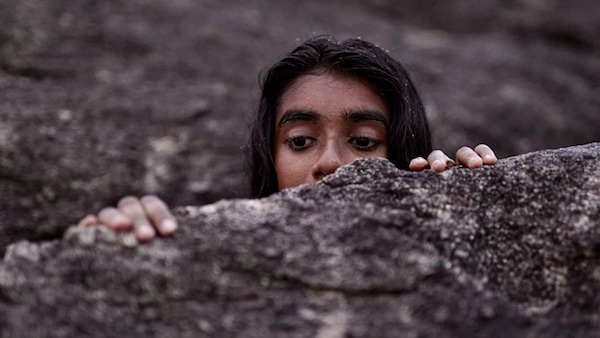Maadathy — An Unfairy Tale review: A chilling drama of caste oppression, gender violence and unquiet spirits
Currently streaming on MUBI, Leena Manimekalai’s Maadathy — An Unfairy Tale is a rare gem of brave cinema.

Last Updated: 12.23 PM, Mar 21, 2022
STORY: A free-spirited, young girl from Tamil Nadu’s oppressed Puthirai Vannars community falls victim to injustice and patriarchy, as her parents bear grim witness to it.
REVIEW: Independent filmmaker Leena Manimekalai doesn’t mince words when she brings to light the haunting realities of caste violence and crimes against women in her compelling folklore drama ‘Maadathy — An Unfairy Tale’. ‘Low life’, ‘unseeable’, ‘untouchable’ and ‘scum’ are among the terms that find repeated mentions in the 90-minute film that follows the life of Yosana (Ajmina Kassim), who belongs to Tamil Nadu’s oppressed Puthirai Vannars community.
The young girl shares a deep bond with the river, where her mother, Veni (Semmalar Annam) washes the clothes of other Dalit households - sometimes, even menstrual cloth. It’s underwater and between the folds of the rocks that dot the winding water body that she finds solace. The river is also the only place that gives her the liberty to be and navigate her awakenings - self, social and sexual. The burden of being born to the ‘lower caste’ is so much that Yosana’s family is not even allowed to cross the river to go meet their relatives. If somebody dies in the village, her father is called to dig the grave, but again he is not allowed to witness the burial. The family mostly survives on handouts, as they struggle to manage two square meals a day. The river stands witness to so many injustices, but it flows as usual. The film’s biggest take away is its unflinching portrayal of caste and gender oppression; prejudices and discrimination that we as a society have fostered for longer than we can comprehend. The rawness of the narrative makes it a fiercely real piece of art.
What makes a more lasting impression though is to realise how people who commit gruesome crimes are also those who are most at ease later; how they assign blame and hurl abuses at ‘others’ to hide their own low character. Even at the loss of a human life, all they care about is preserving the sanctity of a place, which they say is now broken by a ‘scum’. Every bit profound and poignant, the script (co-written by Rafiq Ismail, Yavanika Sriram and Leena ) clearly marks out where the oppressor and oppressed stand among us, fearlessly calling out the former.
Later immortalised as a subaltern deity, called Maadathy, Yosana’s ghost is believed to lurk around the village and the hills that she once roamed about as an ‘unseen’ soul, “ruining the temple and blinding the eyes of those who felt polluted at her sight”. Sequences where a free-spirited Yosana is seen caring for Kuthi Maari (a foal that lost its way in the forest), her puckered fingertips teasing tiny fish in the river and Veni collecting fuller’s earth near a railway track before the crack of dawn with a lantern by her side are the among the most evocative.
VERDICT: More than art, you should watch ‘Maadathy — An Unfairy Tale’ for the reality it shows. Veni and Yosana remain the anchors of the narrative, not only for what they suffer together and individually, but also the tenderness of their relationship as mother and daughter. Leena’s brave, subversive style of storytelling makes the film a rare watch.
*Reema Gowalla is an arts and culture journalist, who mostly writes about theatre and independent cinema, and sometimes also delves into culinary heritage.
WHERE
TO WATCH
Subscribe to our newsletter for top content, delivered fast.
